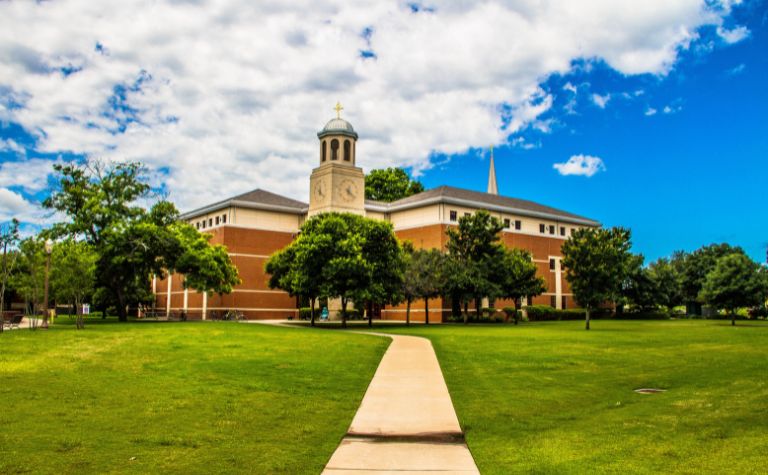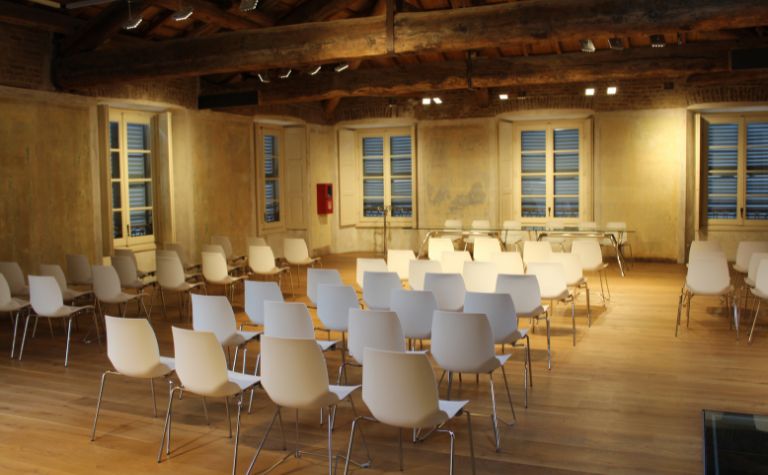Both Fuller Theological Seminary and the Master’s Seminary have left indelible marks on the landscape of theological education.
Each institution boasts its own rich history, unique perspectives, and distinct contributions to the world of Christian academia and ministry.
Given their significance, it becomes imperative for students and scholars alike to understand the core characteristics of each seminary.
This article seeks to provide an objective comparison between Fuller Theological Seminary and the Master’s Seminary, exploring their histories, theological stances, academic offerings, and overall impact on the Christian community.

Historical Background and Origins
Fuller Theological Seminary and the Master’s Seminary, while both influential in their own right, have different origins that have shaped their trajectories.
Fuller Theological Seminary was established in 1947 in Pasadena, California.
It was founded by Charles E. Fuller, a radio evangelist known for his show “The Old Fashioned Revival Hour,” and Harold Ockenga, a prominent figure in the evangelical movement.
Their vision was to create an institution that combined rigorous academic scholarship with evangelical beliefs, addressing the challenges of contemporary society while upholding the foundational tenets of Christianity.
On the other hand, the Master’s Seminary was founded later, in 1986, in Sun Valley, California.
The seminary grew out of the ministry of Grace Community Church and its pastor, John MacArthur.
MacArthur’s commitment to expository preaching and a high view of Scripture became foundational to the seminary’s approach.
The seminary was established with the primary goal of training men for pastoral ministry, emphasizing a deep understanding of the Bible and its application to everyday life and ministry.
While both seminaries originated in California and were born out of a desire to uphold and propagate core Christian beliefs, their founders had distinct visions.
Fuller aimed to bridge the gap between academia and evangelicalism, while the Master’s Seminary focused on producing pastors proficient in biblical exposition and practical ministry.
These foundational goals and visions have played a pivotal role in shaping the character, curriculum, and contributions of each institution, influencing their respective paths in the realm of theological education.

Theological Perspectives and Doctrinal Stances
Fuller Theological Seminary and the Master’s Seminary, despite sharing some common ground, hold distinct theological perspectives and doctrinal stances that characterize their teaching and influence their broader communities.
Fuller Theological Seminary, in its commitment to bridging academic scholarship with evangelical beliefs, has often been open to a range of theological viewpoints.
Over the years, it has fostered an environment where traditional evangelical beliefs coexist with contemporary theological discussions.
This openness has sometimes led to debates on various theological issues within its community.
However, at its core, Fuller maintains a commitment to the authority of Scripture and the centrality of Jesus Christ in salvation.
The Master’s Seminary, on the other hand, has been more specific in its theological convictions.
It firmly upholds a conservative, Reformed theology.
The seminary emphasizes the inerrancy and sufficiency of Scripture, meaning the Bible is without error in its original manuscripts and sufficient for all matters of faith and life.
Furthermore, the Master’s Seminary underscores the importance of expository preaching, which emphasizes the clear and systematic teaching of the Bible, verse by verse.
While both seminaries affirm the foundational tenets of Christianity, such as the Trinity, the deity of Christ, and the resurrection, their emphases and approaches to various doctrinal issues differ.
For instance, while Fuller has traditionally been more open to discussions on topics like biblical interpretation and the role of women in ministry, the Master’s Seminary has been more prescriptive, adhering closely to its conservative, Reformed stance.

Academic Offerings and Curriculum
The academic structures of Fuller Theological Seminary and the Master’s Seminary reflect their foundational visions and theological commitments, and while there are similarities, each institution offers its unique blend of programs and courses.
Fuller Theological Seminary boasts a wide array of degree programs that cater to various vocational and academic interests.
From Master of Divinity (MDiv) to Doctor of Philosophy (PhD), Fuller provides avenues for students interested in pastoral ministry, mission work, counseling, and advanced theological research.
The curriculum at Fuller often intertwines traditional evangelical teachings with contemporary theological and cultural discussions, fostering a learning environment where students are encouraged to engage critically with a broad spectrum of topics.
The Master’s Seminary, aligning with its focus on training men for pastoral ministry, primarily offers programs centered around biblical studies, theology, and pastoral work.
Their flagship program, the Master of Divinity (MDiv), emphasizes a deep understanding of Scripture, its original languages, and its applicability in pastoral settings.
Furthermore, the seminary also offers degrees like the Master of Theology (ThM) and Doctor of Ministry (DMin) for those seeking advanced theological training or pastoral skill enhancement.
Another distinctive feature is the approach to teaching. Fuller often encourages interdisciplinary studies, allowing students to integrate theology with psychology, intercultural studies, or arts.
The Master’s Seminary, with its emphasis on expository preaching and biblical exposition, dedicates significant time and resources to ensure students are proficient in handling the biblical text, often involving rigorous training in Hebrew and Greek.
To summarize, both Fuller Theological Seminary and the Master’s Seminary offer robust academic programs tailored to their respective visions.
Fuller’s curriculum is broad, encompassing a wide range of theological and cultural topics, while the Master’s Seminary is more focused, emphasizing deep biblical understanding and pastoral proficiency.
Campus Life and Community Engagement
The environment in which students study and interact plays a crucial role in shaping their overall educational experience.
Both Fuller Theological Seminary and the Master’s Seminary, while offering distinct campus atmospheres, prioritize fostering a sense of community and engaging with broader societal concerns.
Fuller Theological Seminary’s main campus in Pasadena is characterized by a blend of historical architecture and modern facilities.
Students have access to a plethora of resources, including a well-equipped library and spaces for reflection and interaction.
Additionally, Fuller’s commitment to integrating theology with contemporary issues can be seen in the range of workshops, seminars, and guest lectures that are regularly hosted on campus.
These events often invite thinkers and leaders from various fields, allowing students to engage with pressing topics from a theological perspective.
The campus life at the Master’s Seminary, situated in Sun Valley, emphasizes a close-knit community centered around shared convictions.
The environment is conducive to deep biblical study and reflection.
Regular chapel services, community meals, and group discussions form integral parts of a student’s life at the seminary.
Moreover, the connection with Grace Community Church provides students with opportunities to be actively involved in various church ministries, enabling them to apply their learning in real-world contexts.
Community engagement remains a strong focus for both institutions.
Fuller Theological Seminary often collaborates with organizations and communities locally and globally, addressing issues like social justice, environmental concerns, and community development.
Students are encouraged to participate in these initiatives, bridging the gap between academia and real-world challenges.
On the other hand, the Master’s Seminary, with its commitment to pastoral training, places emphasis on local church involvement.
Students often engage in outreach activities, counseling, and pastoral roles in nearby churches, translating their academic training into tangible service.
In essence, both Fuller Theological Seminary and the Master’s Seminary provide vibrant campus experiences, fostering communities of learning and service.
While the atmospheres might differ, the commitment to holistic education and active community engagement remains a shared priority.
Recent Posts
David Jeremiah, a renowned pastor, author, and speaker, has captivated the hearts of many with his compelling sermons. His messages resonate deeply with diverse audiences, leaving an enduring...
Tim Keller, a distinguished pastor, theologian, and author, has garnered a devoted following through the profound impact of his sermons. In this article, we will explore seven compelling reasons...
